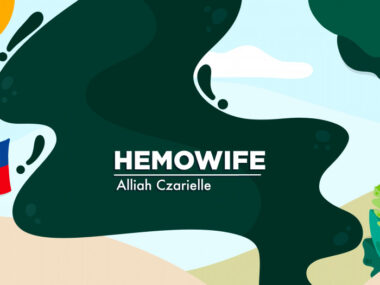What does happiness look like in life with chronic conditions?
Finding fulfillment, even if we don't have perfect health or financial stability
Written by |

Lately I’ve been pondering how to achieve long-term happiness and fulfillment while managing finances and chronic illnesses. My husband, Jared, battles hemophilia B and seizures while I manage attention-deficit/hyperactivity disorder and bipolar II disorder.
Receiving Jared’s medication through humanitarian aid is a blessing, yet its consistency isn’t guaranteed. Recently, we’ve discussed acquiring knee braces and ankle pads to aid his mobility while he’s recovering from bleeds. These necessities, however, come with a financial burden.
Managing my mental health is also paramount. My psychiatrist linked my recent anxiety episodes to bipolar depression. While I prioritize natural management methods such as exercise and rest for that condition, medication remains crucial.
Challenging the pursuit of perfection in health and finances
Constant financial worries and penny-pinching induce significant stress. I’ve begun questioning the conventional message that fulfillment comes from achieving “perfect” health or by saving aggressively to be able to afford substantial investments, such as better housing or additional vehicles. Do these aspirations genuinely align with our family’s core goals?
I’ve accepted that Jared will never fit the standard definition of perfect health. His hemophilia and seizures are chronic conditions, and managing them is part of our daily life.
But as a caregiver, I feel immense pressure to maintain my own physical and mental health so I can continue to care for him. I’ve feared that any “off” feeling might signal a decline in my abilities. This constant worry has triggered my anxiety over the past few months.
Striving for an idealized state of health and financial stability seems synonymous with achieving happiness and fulfillment. But is it? Is that pursuit truly necessary?
Embracing adaptation and small victories
Living with chronic illnesses has taught us valuable lessons about adaptation. Finding joy in small victories while managing our conditions proves more fulfilling than chasing an idealized version of health and happiness. Achieving balance, where we effectively manage our health without fixating on perfection, emerges as a key priority.
An enlightening article from PWL Capital titled “Finding and Funding a Good Life” prompted me to reevaluate my perspective. It emphasized how people adeptly adapt to circumstances, including changes in health. Reflecting on this, I’ve realized that aiming for a manageable health threshold conducive to a fulfilling life may be more beneficial than fixating on achieving a “perfect” health state.
Jared embodies this perspective wholeheartedly. He once expressed uncertainty about how he’d feel if his hemophilia were to miraculously disappear. While the prospect intrigues him, he questions whether it’d bring lasting happiness. His identity, fortified by coping with hemophilia, features strengths in resilience, character, and the pride he takes in self-infusing factor. Losing these attributes, which he’s cultivated through his condition, would leave a void.
Navigating uncertainty and embracing the present
The end-of-history illusion complicates our expectations. It posits that people believe their current selves will remain unchanged, despite life’s inevitable shifts. This illusion challenges our ability to predict happiness. My anxieties often revolve around future uncertainties, rooted in today’s perceptions and circumstances.
Focusing on present choices and their current impact, rather than fixating on an idealized but potentially nonexistent future, proves to be a more constructive approach.
With this new perspective, I feel a good life for us includes the following:
- essential needs, including shelter and reliable transportation (check!)
- engaging in hobbies that nurture our sanity, such as art and gaming with our daughter
- maintaining a consistent gym routine for our physical and mental well-being, which is particularly essential for a caregiver
- Jared’s pursuit of cooking and hobbies, despite occasional bleeds
- ensuring our daughter’s needs are met, including health and education
- access to necessary medications and mobility aids
- embracing nature, which enhances happiness and well-being more profoundly than we often perceive
- caring for our pets, a dog and two cats, which supports our mental health.
I often remind myself that happiness doesn’t require perfection. It’s about adapting to our circumstances, finding joy in everyday moments, and achieving balance instead of seeking perfection. By investing time in hobbies, nurturing meaningful relationships, and prioritizing our well-being, we can better navigate life’s complexities with chronic illnesses and find long-term happiness.
Note: Hemophilia News Today is strictly a news and information website about the disease. It does not provide medical advice, diagnosis, or treatment. This content is not intended to be a substitute for professional medical advice, diagnosis, or treatment. Always seek the advice of your physician or another qualified health provider with any questions you may have regarding a medical condition. Never disregard professional medical advice or delay in seeking it because of something you have read on this website. The opinions expressed in this column are not those of Hemophilia News Today or its parent company, Bionews, and are intended to spark discussion about issues pertaining to hemophilia.



Leave a comment
Fill in the required fields to post. Your email address will not be published.